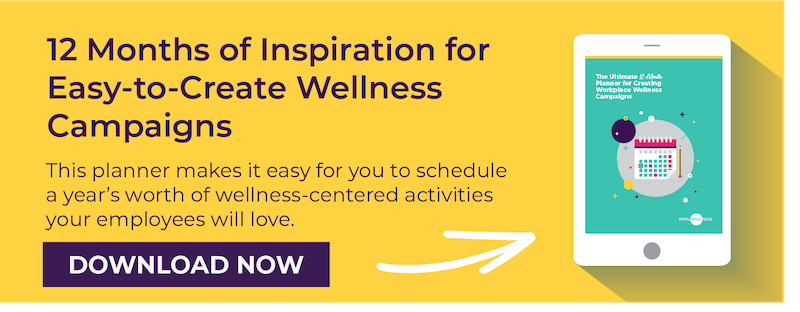If your morning and evening commutes are your least favorite part of your workday, you’re not alone. In fact, a daily car commute is ranked as one the top two things Americans hate the most on a day-to-day basis, only second to housework.

Not only is your daily commute unpleasant, it’s also bad for your overall health and wellbeing. According to a 2014 study by the University of Waterloo, the more time you spend commuting, the less likely you are to be satisfied with life. Similarly, another recent study found that adding 20 minutes to your daily commute has the same negative effort on job satisfaction as receiving a 19% pay cut.
These studies show that long commutes take a serious toll on not only your personal life, but on your professional life as well. So, why exactly are long commutes so dangerous to your health?
-
Increased stress. The researchers of the University of Waterloo study claim that long commute times are related to an increased sense of time pressure – which can ultimately increase stress levels. These increased levels of stress can lead to a multitude of physical and mental health problems, including high blood pressure, increased risk of chronic illness, chronic pain, and fatigue.
-
Less time. Employees who spend an hour or more commuting every single workday lose out on a lot of valuable time that could be spent practicing healthy habits. Those with long commutes often report having less time to exercise, cook healthy meals, and spend time with their loved ones — all factors that contribute to health and happiness.
-
More sitting. Many U.S. employees spend the majority of their workday sitting — which is already bad enough as it is. On top of those eight hours, employees with long commutes spend even more time each day sitting. Sedentary lifestyles (also known as the “sitting disease”) are extremely dangerous to your health. Employees who sit too much throughout the day have a much higher risk of chronic illness and shorter lifespans.
-
Isolation. Many adults report feeling lonely or isolated during commutes. Spending a long time alone without much stimulation can harm your mental and emotional well-being.
While commutes can negatively affect your well-being if you’re not careful, the good news is that there are many things you can do to make your commute more pleasant and better for your health. Try out some of the ideas below during your next commute:
Read. Reading has numerous health benefits. Research found that reading reduces stress, improves brain functions, and helps promote quality sleep. If you take public transportation to get to work, bring a book with you to read. If you drive to work, turn on an audiobook or listen to an interesting podcast. Both will help stimulate your brain and help you feel more productive by the time you get into the office.
Meditate. Spending your commute time meditating is a great way to reduce stress while also boosting creativity and productivity. It’s an amazing way to start and end your workday! Obviously, if you are driving, you shouldn’t meditate. Instead, try out some deep breathing techniques or practice mindfulness while you’re on the road. Check out this article for some ideas!
Buddy up. Everything is better with a friend! Find a colleague (or friend who works close to your office) and carpool together. Using your commute time to socialize will help you feel less lonely and isolated on your way to the office. Carpooling is also great for the environment and helps you save some gas money!
De-stress. Sitting in traffic can be extremely stressful, which is why it’s important to practice some stress-relieving techniques during your commute. Play relaxing music, listen to a funny podcast, or try out some aromatherapy.
Eat breakfast. Always eat a healthy breakfast before starting your commute! Commuting on an empty stomach can increase your stress levels – and no one wants to be “hangry” while traveling! Try meal prepping your breakfasts ahead of time so that you have an easy, nutritious breakfast ready to go before you hit the road.
Walk or bike. If walking or biking to work is a plausible option, go for it! Walking or biking to work is the healthiest type of commute there is. If your office is too far away for you to walk or bike to, try to get in as much movement as possible during your commute. Get off one stop early and walk the rest of the way to your office or park far away.
Practice better posture. It’s easy to slouch during a long commute, but slouching is terrible for your body. Research found that slouching can lead to chronic fatigue and even make you feel depressed. Not to mention, sitting properly while driving or using public transportation is much safer. Check out this article for some helpful tips.
Also, be sure to stretch before and after your commute to help prevent sore muscles and promote better blood flow.
Bring a change of shoes. Driving in professional work attire can be uncomfortable – especially for your feet! Bring a change of comfortable shoes to keep in your car and put them on before hitting the road. If you feel comfortable, your commute will be much more pleasant!
Your work commute doesn’t have to make you miserable and unhealthy. With a few tweaks and a bit of preparation, you can make it a more pleasant and healthier part of your workday.
How long is your commute to work? Comment below!
Like this blog post? Share it with your employees or co-workers with this printable version of the blog!
Image created by Pressfoto - Freepik.com



